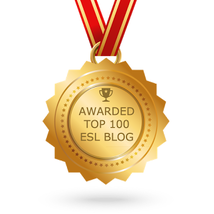|
Whether you are a campus lead teacher, ELL specialist, instructional coach, or administrator, you can benefit from conducting a learning walk on your campus. Learning walks are arguably of the greatest forms of job embedded professional development. I'm a huge believer in the power of learning from colleagues. As a campus ESL Instructional Specialist for five years, I traveled to various classrooms on a daily basis and co-taught with teachers in k-5th grades. This was an amazing experience for me. It allowed me to see some powerful instructional practices and also some that needed support. I have never forgotten the power of learning from my colleagues. But I realize that most teachers don't have the luxury of learning from other teachers on a daily basis. That's why conducting campus learning walks can be just the answer! What is a learning walk? A learning walk is a set date and time for a group of educators to travel to classrooms to conduct a quick observation. Observations are usually focused on a predetermined area and a schedule is created for the day. Why are learning walks useful? As educators we can learn so much from one another. Depending on the lens that we look through as we conduct a learning walk, we can use the information we gather in a number of ways. The learning walk could be focused on classroom management and we will use the information to guide future professional development so the campus is aligned and all classrooms have a shared vision. Or the learning walk could be focused on ELLs and we could be looking for accommodations and scaffolds that support English learners. We would use the data to support future professional development. What's going well? What do teachers need to know to support their students? Perhaps you have a group of brand new teachers and you want to take them to observe seasoned teachers. Or we could focus on special education needs, differentiation, workshop model, etc. How do I conduct a learning walk on my campus?
What can I do with the information gathered from a learning walk? The information is valuable as a campus or district leader. Use it to provide professional development tailored to the needs of the campus or groups staff members. Perhaps after the learning walk, the debrief found that students were doing little talk in the classrooms. A suggested next step may be to provide professional development on how to build structured conversations for ELLs to elevate the level of academic discourse. I have even been on learning walks on other campuses. For example, a campus wanted to highlight how awesome their teachers were doing with co-teaching. So they organized a learning walk to showcase their classrooms. It was amazing and other teachers came to see co-teaching in action. Another campus wanted to highlight their reading workshop success. And my favorite learning walk was one that showcased the implementation of the 7 Steps to a Language Rich Interactive Classroom. We visited classrooms k-5th grades and saw all the steps in action with students. Seamless!
Comments are closed.
|
Categories
All
|
||||||
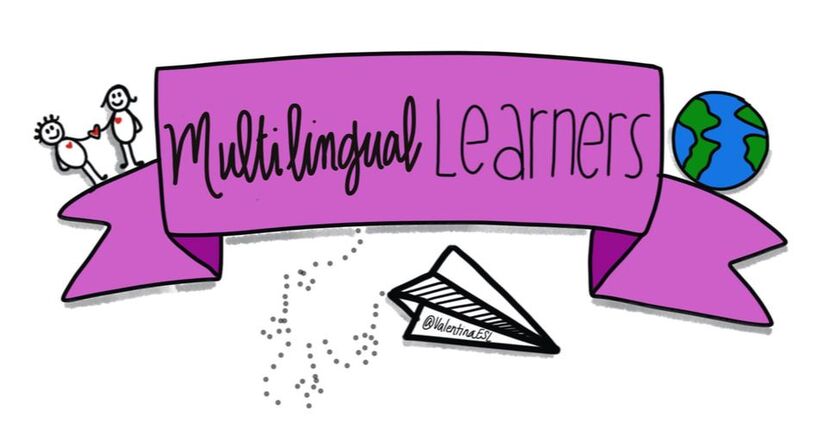
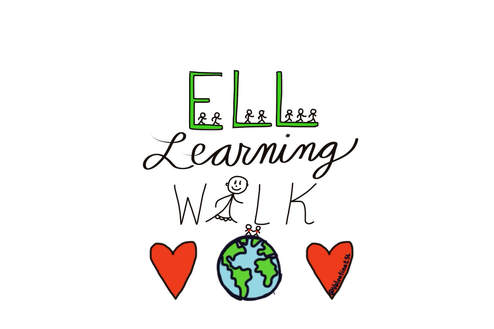
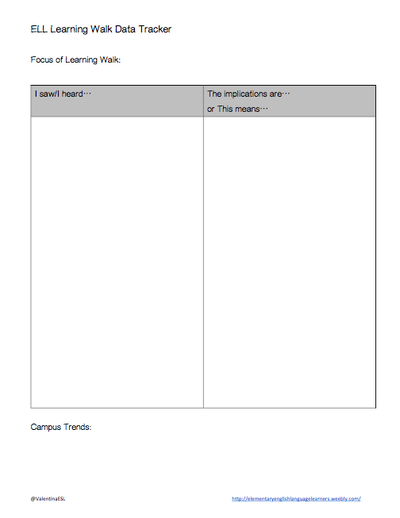
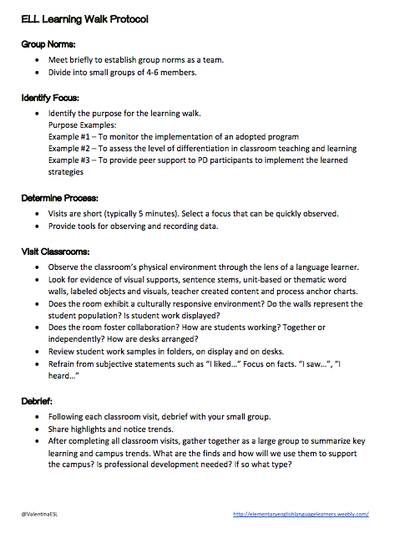
 RSS Feed
RSS Feed
